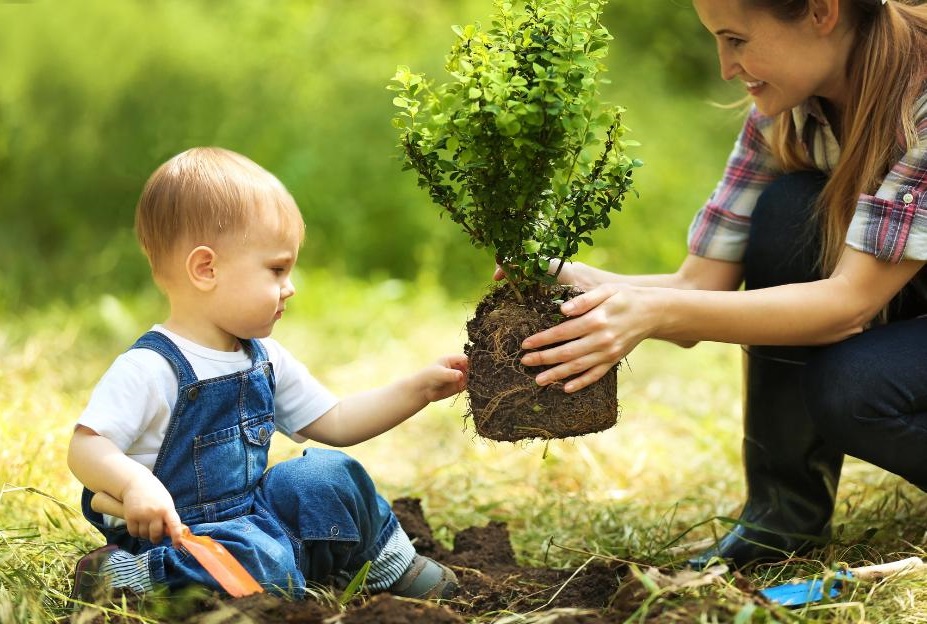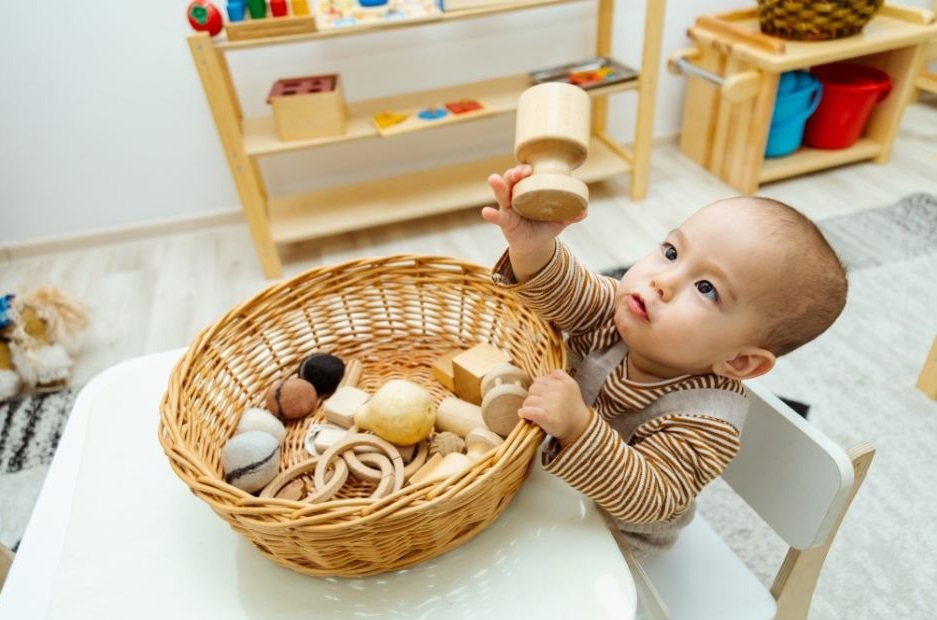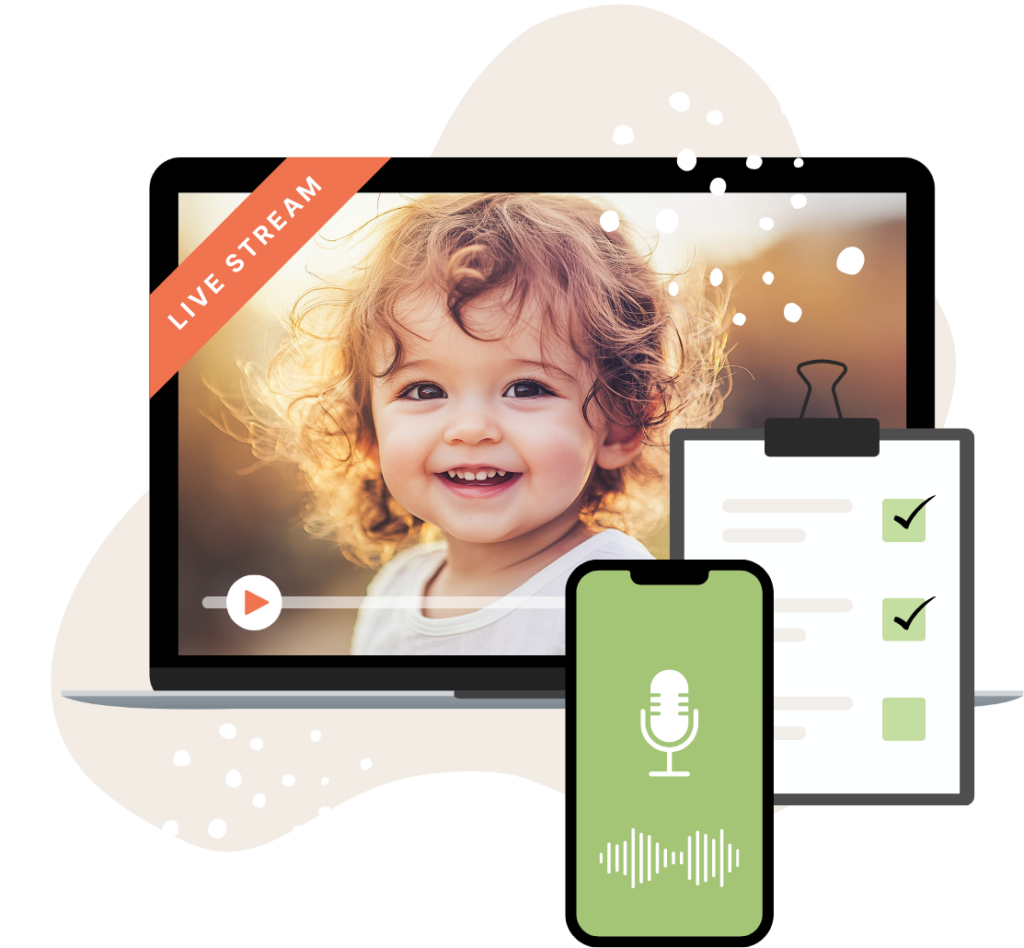Knowing what to expect in your baby’s first year of life can help both you and your little one thrive. Here is a look at the exciting things to come during the first half of your little one’s first year of life.
0-3 Months
A newborn enters the world very prepared from their time in utero. The first eight weeks is known as Symbiosis, meaning life together; it is the time when your relationship with your baby commences and is the period for the establishment of basic trust.
Your baby will arrive with senses partially developed. Hearing commences in utero and is well developed at birth. Hearing fully develops close to the third month. From birth, your baby will prefer the human voice to any other sound, particularly drawn to voices of familiar parents and caregivers as sources of comfort.
Vision develops partially in utero as well. They experience lightness and darkness. From the moment of birth, your baby is able to see approximately 20-35 cm–just the right distance for focusing on a parent or caregiver’s face during feedings. Newborns can see bold contrast, especially black and white, and are able to track very slowly moving objects. By three months, your baby can discern color on a chromatic scale (e.g. tones of the color green).
By around the end of the first month, your baby is likely to attend to the person talking to them. Your baby may even commence cooing when engaged in face-to-face contact and conversation with a parent, sibling, or other primary caregiver. By three months, your baby may realize that your vocalization comes from a part of your body and will begin to perceive high-pitched sounds.
During this time, your baby will experience much gross motor movement and development. They will gain more control of the muscles of their neck, allowing them to first turn their head, then lift their head up, and then turn their head when on their stomach. They may even be able to roll in one direction due to head turning and roll onto their back.
From a fine motor perspective, they will begin reaching out toward toys and other objects. Their grasping progresses from involuntary to reflexive grasping to intentional grasping.
What you can do
- Consider careful preparation of the physical environment. Dim the lighting, play soft music that they may be familiar with from their time in utero, ensure your little one is able to easily see your face, utilize a comfort pillow such as a Topponcino, and engage in plenty of unrushed skin-to-skin contact.
- Offer high-contrast imagery and Montessori mobiles including the Munari and Octahedron to your baby while lying on their back.
- Lay your baby in both prone (on the back) and in supine (on the stomach) position to allow them to observe their environment.
- Begin offering toys for sensorial exploration with a variety of properties that offer support and stimulus of sensory development including silver rattles, interlocking circles, and a sensory ball.
- Immerse your baby in a language-rich environment. Have a conversation with them and describe various aspects of their toys, happenings in the home, and what you are doing when caring for them.
Explore the fundamentals of Montessori parenting with this free video by Sylvia Arotin, offering insights and strategies to empower and educate your child.
3-6 Months
Between three and six months, your baby’s eyes are able to focus a little ahead of a moving object. Rather than simply tracking an object, your baby is now able to anticipate the movement of an object. They develop binocular vision, allowing them to see in three dimensions, dramatically improving their attention to detail. Your baby begins to perceive bold colors at two to four months of age.
Their hearing fully develops. Cooing may continue and they may begin squealing, exercising their vocal range. They may begin babbling–repeating the same consonant sound as a syllable again and again (e.g. baaa, maaa).
At this time, your baby will begin to show signs that they understand gestures you make like bye-bye, give me the, and come on. They may also respond to loving tones, joining in on kisses and cuddles, and to redirections.
They can turn their head from side to side, visually tracking an object or mobile and hold their head steady when held in an upright position. They will turn in the direction of a familiar voice, rich for a desired object, and roll in one direction. They should be able to sit without support and may begin slithering or sliding along on their stomach or tucking their knees and rocking. They may even be able to use furniture or your clothing to begin pulling themselves up to a seated or standing position for a short time.
During this stage, and then lasting for quite some time, everything will begin going into your baby’s mouth to orally explore. These are important learning experiences that build up their sensory memory and create neural pathways in their brain and body.
What you can do
- Continue using Montessori mobiles such as the Gobbi and Dancers and introduce visual mobiles with tactile mobiles, such as the Ring on a Ribbon and the Kicking Ball, that encourage your baby to reach and grasp.
- Place 2-3 toys within your child’s reach, offering them to choose what they’re interested in exploring and encouraging them to move their bodies towards objects of interest.
- Begin increasing independent time. Move away slowly, using your voice to let your baby know you are still close by. This builds a sense of security that enables them to increase the amount of time spent engaging independently.
- Engage in a communication dance with your baby. Listen for the sounds they’re making. While looking them in the eyes, repeat those sounds back. Pause, using silence to give them time to respond. Then you respond again.






